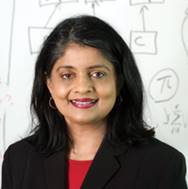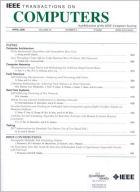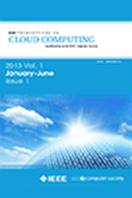|
|
Program
November 5, 2015
Summit Keynote

|
Keynote: Dr. Bhavani Thuraisingham
Louis A. Beecherl, Jr. I, Distinguished Professor
Department of Computer Science
Executive Director of the Cyber Security Research Institute
Erik Jonsson School of Engineering and Computer Science
The University of Texas at Dallas
Bio: Dr. Bhavani Thuraisingham is the Louis A. Beecherl, Jr. Distinguished
Professor of Computer Science and the Executive Director of the Cyber Security Research
and Education Institute (CSI) at The University of Texas at Dallas. She is an elected
Fellow of IEEE, the AAAS, the British Computer Society, and the SPDS (Society for Design
and Process Science). She received several prestigious award including IEEE Computer
Society's 1997 Technical Achievement Award for "outstanding and innovative contributions
to secure data management", the 2010 ACM SIGSAC (Association for Computing Machinery,
Special Interest Group on Security, Audit and Control) Outstanding Contributions Award
for "seminal research contributions and leadership in data and applications security
for over 25 years" and the SDPS Transformative Achievement Gold Medal for her
contributions to interdisciplinary research. She has unique experience working in the
commercial industry (Honeywell), federal research laboratory (MITRE), US government
(NSF) and academia and her 35 year career includes research and development, technology
transfer, product development, program management, and consulting for the federal
government. Her work has resulted in 100+ journal articles, 200+ conference papers,
100+ keynote and featured addresses, eight US patents (three pending) and fifteen books
(two pending). She received the prestigious earned higher doctorate degree (DEng) from
the University of Bristol England in 2011 for her published work in secure data
management since her PhD. She has been a strong advocate for women in computing and has
delivered featured addresses at events organized by the CRA-W (Computing Research Association)
and SWE (Society for Women Engineers).
Title: CLOUD-CENTRIC ASSURED INFORMATION SHARING FOR SECURE SOCAL NETWORKING AND INTERNET OF THINGS
Abstract:
This presentation will describe our research and development efforts in assured cloud computing for the Air Force Office of Scientific Research. We have developed a secure cloud computing framework as well as multiple secure cloud query processing systems. Our framework uses Hadoop to store and retrieve large numbers of RDF triples by exploiting the cloud computing paradigm and we have developed a scheme to store RDF data in a Hadoop Distributed File System. We implemented XACML-based policy management and integrated it with our query processing strategies. For secure query processing with relational data we utilized the HIVE framework. More recently we have developed strategies for secure storage and query processing in a hybrid cloud. In particular, we have developed algorithms for query processing wherein user's local computing capability is exploited alongside public cloud services to deliver an efficient and secure data management solution. We have also developed techniques for secure virtualization using the XEN hypervisor to host our cloud data managers as well as an RDF-based policy engine hosted on our cloud computing framework. Finally we have developed a secure social media framework hosted on our secure cloud computing framework.
The presentation will discuss our secure cloud computing framework for assured information sharing and discuss the secure social media framework. We will then discuss the relationship to big data security and privacy aspects and connect our research to Secure Internet of Things with a special emphasis on data privacy.
|

|
Keynote: Dr. Kui (Quinn) Ren
Associate Professor
Department of Computer Science and Engineering
University at Buffalo, State University of New York
Bio:
Kui Ren is an associate professor of Computer Science and Engineering and the director of UbiSeC Lab at State University of New York at Buffalo. He received his PhD degree from Worcester Polytechnic Institute. Kui's current research interest spans Cloud & Outsourcing Security, Wireless & Wearable System Security, and Human-centered Computing. His research has been supported by NSF, DoE, AFRL, MSR, and Amazon. He is a recipient of NSF CAREER Award in 2011 and Sigma Xi/IIT Research Excellence Award in 2012. Kui has published 150 peer-review journal and conference papers and received several Best Paper Awards including IEEE ICNP 2011. He currently serves as an associate editor for IEEE Transactions on Dependable and Secure Computing, IEEE Transactions on Mobile Computing, IEEE Transactions on Information Forensics and Security, IEEE Wireless Communications, IEEE Internet of Things Journal, IEEE Transactions on Smart Grid, and Oxford The Computer Journal. Kui is a senior member of IEEE, a member of ACM, a Distinguished Lecturer of IEEE, and a past board member of Internet Privacy Task Force, State of Illinois.
Topic: Secure Outsourcing Image Feature Extraction: Challenges and Solutions
Abstract:
The amount and availability of user-contributed image data have grown to an unprecedented level during recent years. Social network service providers, like Facebook and Twitter, are heavily exploiting these vast valuable data to study user behaviors, social preferences, et al., for various business purposes. However, existing practices could seriously breach users' privacy and have led to increasing public criticisms and legislation pressures. The pressing need to develop sound privacy-preserving image processing mechanisms is being recognized by the research community.
In this talk, I will present our research on secure outsourcing of image feature extraction, a widely-applicable technique for various content-based image applications. Our goal is to enable a public cloud service provider to perform a variety of image feature detection tasks, including both global features (visual descriptors in MPEG-7 standard) and local features (Scalar Invariant Feature Transform), while protecting image contents related to users' privacy. I will first discuss the research challenges, which mainly lie in the complicated functionality requirements of image feature extraction algorithms. A practical solution requires delicate tradeoffs among functionality, efficiency, and privacy. I will then introduce our solutions on secure outsourcing both global and local feature extractions. For the former, our solution is a generalized feature extraction platform over the somewhat homomorphic encryption scheme. For the latter, we utilize a multi-server cloud structure with a tailored practical security design. Finally, we conclude the talk by discussing future research directions and the related open issues . |

|
Keynote: Dr. Ming Jiang
Bio: Dr Ming Jiang obtained his Ph.D in Mathematics at North Carolina State University in 2013 and is currently a Data Scientist at Suning Commerce R&D Center USA, Inc. Prior to that, he was a Sr Credit Risk Analyst at First Tennessee bank. Dr Jiang has extensive experience in credit risk modeling and financial fraud detection. He is interested in big data security with the focus on payment fraud detection solutions.
Title:
Big Data Big Intelligence: Machine Learning Fraud Detection in E-commerce
Abstract:
In recent years, China online shopping has been taking the lead in global online shopping market. Payment security has become a serious concern to customers and e-commerce companies. Total global payment-card fraud losses were $11.3 billion in 2012, up nearly 15% from the prior year (The economist, Feb. 15 2014). In order to successfully combat fraud in Suning daily million-level online transactions, while ensuring a satisfactory shopping experience, our lab uses Machine Learning techniques along with real time analytics to identify fraudulent activities. This talk explains the challenges of fraud detection in modern online shopping websites, as well as our approaches developed to deal with the intractable class imbalance problem.
|
|
|
| |
|
Organized by IEEE, IEEE Computer Society, IEEE TCSC, Pace University, Shanghai Jiao Tong University, Columbia University, Henan University, Stony Brook University, IEEE Transactions on Computers, and IEEE Transactions on Cloud Computing.
|














